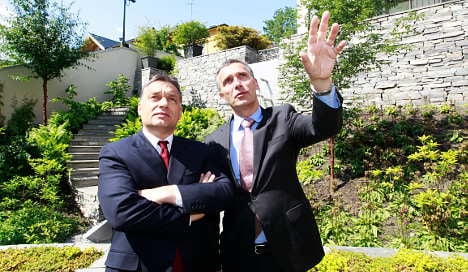Sweden allocated 1.12 percent of GDP to development aid in 2009, ahead of second-placed Luxembourg on 1.01 percent, new statistics from AidWatch and Concord Europe show.
The EU country which allocated the least to development aid was found to be Bulgaria, which spent 0.04 percent and Romania with 0.08 percent.
Concord – the European NGO Confederation for Relief and Development – is an umbrella organisation for aid organisations and one of its activities is to monitor member states’ adherence to the Millennium Development Goals.
In its new report, entitled “Penalty against Poverty: More and Better EU aid can score Millennium Development Goals”, Concorde argues that EU member states are “missing their official development aid targets and jeopardising global efforts to reach the Millennium Development Goals”.
The report, compiled annually by AidWatch, forecasts that Sweden is all set to meet its one percent of GDP goal on development aid spending for 2011 but warns that by shifting some aid spending to climate measures Sweden is in breach of the Kyoto Protocol.
AidWatch meanwhile directs criticism at several EU countries for not doing enough to meet the 0.56 percent target agreed in 2005.
“Penalty against Poverty finds that EU development aid in 2009 amounted to €49bn ($60 billion) or 0.42% of national income – €1 billion less than 2008 levels. Official estimates for 2010 put total EU aid at 0.46% of national income, far short of the 0.56% target for 2010 agreed by member states back in 2005.”
Concord writes that aid spending for 2010 is set to record a shortfall on this goal on €11bn in funding “with some of the EU’s biggest economies – Italy (€4.5bn), Germany (€2.6bn) and France (€800m) – amongst the worst offenders.”
While the organisation accepts that the worst fears of a global food crisis and economic backlash outlined in the 2009 report have not been realized, it projects that 63 million people will fall under the international poverty line – set by the World Bank at $1.25 per day at 2005 purchasing-power parity (PPP).


 Please whitelist us to continue reading.
Please whitelist us to continue reading.
Member comments